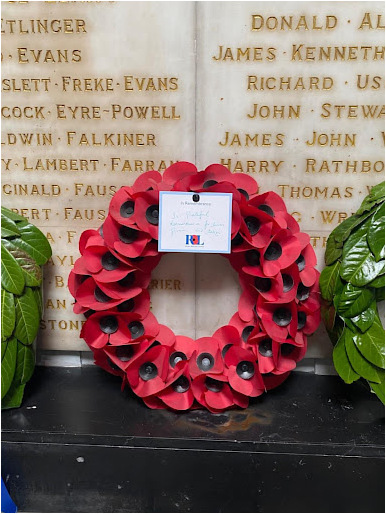Last Sunday, Trinity held its Remembrance Sunday ceremony on campus. Remembrance Sunday itself is a well known event, occurring both within the United Kingdom, and within many of its former colonies – although it is not an officially recognised holiday in Ireland. The event celebrates the lives of British soldiers that have been lost in all conflicts since (and including) World War One. Within Trinity, it is well known that many students fought for the British Army, and many perished in the First World War. This is why some may argue that Trinity should continue to commemorate Remembrance Sunday as a tribute to the fallen students. However, this viewpoint seemingly becomes more difficult to justify when one considers that in Ireland we have our own Day of Remembrance, falling on the Sunday closest to July 11th. According to Óglaigh na hÉireann (Irish Defence Forces), this Day of Remembrance includes “all Irishmen and Irishwomen who died in past wars or on service with the United Nations”.
The ceremony on campus was followed by the laying of wreaths in the 1937 Postgraduate Reading Room, also known as the Hall of Honour. This building was built to commemorate the Trinity faculty who perished in the First World War. One of these green wreaths bears a note, stating that it had been placed on behalf of Trinity’s modern day student body. Another wreath bears a letter in memory of the Trinity faculty who fought in the Second World War (notably in which the Irish Free State did not participate). However, most prominently, one will discover a wreath of bright red poppies, nestled right in the middle of the display. Here, one will find a card which simply reads “In grateful remembrance for lives given and taken”. This message is placed on a card that has been stamped with the logo of the Royal British Legion.
However, this poppy wreath is not easily accessible to the large majority of Trinity’s student body, given that it is hidden away in the 1937 Reading Room, where only Trinity’s postgraduate students have access to. Alongside this, it is peculiar how Trinity has failed to post a single piece of content on their social media about their Remembrance Sunday commemoration, despite, for example, creating and posting content within twenty four hours of Paul Mescal’s visit to campus. In fact, it seems that the only evidence of this event occurring is an email sent to the student body on November 4th, inviting students to a church service on the day, followed by a memorial “where the Registrar and others will lay wreaths at the Hall of Honour (1937 Reading Room)”.
Trinity did not inform the student body as to who the “others” were, and considering that the majority of Trinity’s student body do not have access to the Hall of Honour, this raises the question of how many students are aware that this type of ceremony is taking place on their campus. In addition to this, Trinity’s failure to post content on its social media channels regarding this event, adds another worrying dimension to this discussion.
As Remembrance Sunday includes all British soldiers, this would mean that British soldiers who were deployed and killed in Northern Ireland during the duration of The Troubles are celebrated as part of Remembrance Sunday celebrations. Therefore, it seems reasonable to question how appropriate it is for Trinity College to continue to celebrate and commemorate the British Remembrance Sunday, given that this day is also associated with celebrating the British soldiers who were involved in the events that transpired in Northern Ireland throughout The Troubles.
Trinity has always been proud of its unique identity within Irish higher education. Quoting a recent comment article published in Trinity News, Trinity’s culture has been described as being “alien” to that of the culture of Ireland. Considering its placement in the heart of Ireland’s capital – and considering the growing calls from College for increased funding from the Irish government – perhaps it might be time, after more than one hundred years of independence, for Trinity to normalise itself into Irish culture, and cast off its colonial traditions.







